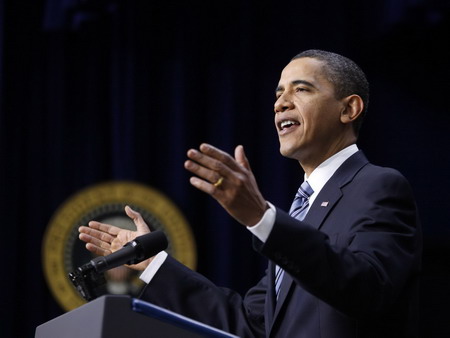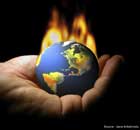Asia-Pacific
From war to peace: Obama to accept Nobel prize
(Agencies)
Updated: 2009-12-10 13:49
WASHINGTON: US President Barack Obama will confront the Afghan war "head-on" when he accepts the Nobel Peace Prize on Thursday and address criticism he does not deserve it so early in his presidency, officials said.
Obama is the third sitting US president, along with Theodore Roosevelt and Woodrow Wilson, to win the prize. Jimmy Carter was honored two decades after he left office. Other prominent Nobel peace laureates include Nelson Mandela, Martin Luther King Jr. and Mother Teresa.
Obama will accept the prize just nine days after he ordered 30,000 more US troops to Afghanistan to break the momentum of the Taliban. The troop announcement, so soon to the Nobel ceremony, was an "interesting coincidence of history" not lost on the president, a senior administration official said.
He is due to receive the award in a ceremony in Oslo City Hall starting at 1200 GMT (7 am EST) after flying overnight from Washington. Aides said Obama, known for his soaring rhetoric, was still working on the estimated 20- to 25-minute speech in the hours before he was due to travel.
Americans remain anxious about the economy, nudging Obama's approval ratings to 50 percent or below and potentially hurting his Democratic Party in congressional elections next year.
Some polls show that while many Americans are proud Obama is receiving the award, a majority feel it is undeserved.
Many people were stunned, including some in the White House, when the Nobel committee announced in October it was awarding the peace prize to Obama for "his extraordinary efforts to strengthen international diplomacy and cooperation between peoples" and cited his push for nuclear disarmament.
Critics called the decision premature, given that Obama, who took office in January, had achieved few tangible gains as he grapples with challenges ranging from the war in Afghanistan and nuclear stand-offs with Iran and the Democratic People's Republic of Korea to climate change.
Obama is due to join scores of other world leaders in Copenhagen next week at the climax of a UN conference on climate change, although legislation to curb greenhouse gas emissions is stuck in the US Congress.
The administration official said Obama would not shy away from the Afghanistan war in his speech in Oslo and would address the apparent contradiction of a wartime president whose country is involved in two wars receiving a peace prize.
"Right now, he has a range of foreign policy and national security initiatives, all of which are designed toward achieving greater peace and security in the world. That would include our efforts in Afghanistan, our efforts against extremism," the official said.
Obama will address issues like the Afghan conflict "head-on," the official said, adding Obama would also deal with the question of whether he deserved the prize.
"He feels in many ways that he has not fully earned the award yet. He is at the beginning of his presidency and in many ways at the beginning of his work on behalf of peace."
At the time of the announcement, Obama said he was surprised and deeply humbled but would accept the award as a "call to action" to confront the global challenges of the 21st century.
"I will say the president understands and again will also recognize that he doesn't belong in the same discussion as Mandela and Mother Teresa," White House spokesman Robert Gibbs said on Wednesday.
"But I think what the president is proud of is the steps that this administration has taken to re-engage the world."
Obama has been widely credited with improving America's global image after the eight-year presidency of George W. Bush, who alienated allies with his mostly unilateral policies, like the 2003 US-led invasion of Iraq.













